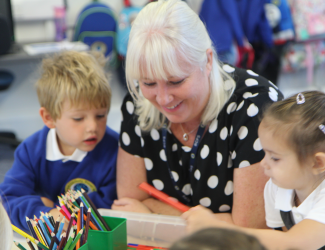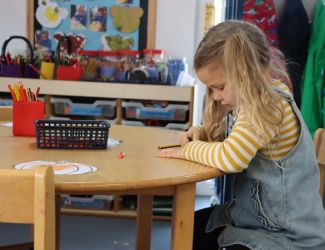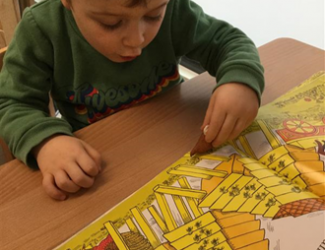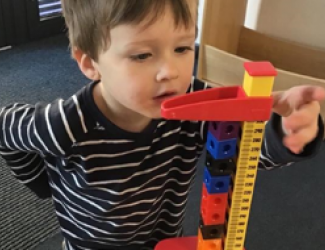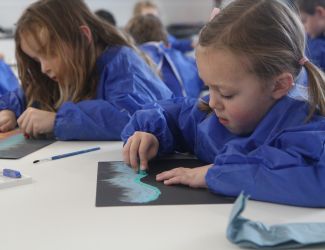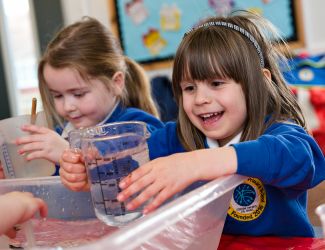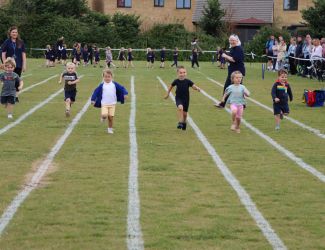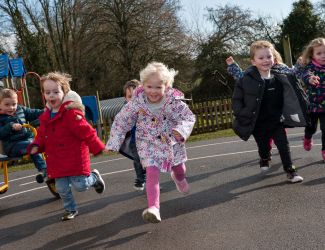Nursery Personal, Social and Emotional Development Curriculum
Children will be taught...
EYFS Development Matters Statements Birth to Three
- Find ways to calm themselves, through being calmed and comforted by their key person.
- Establish their sense of self.
- Express preferences and decisions. They also try new things and start establishing their autonomy.
- Engage with others through gestures, gaze and talk.
- Use that engagement to achieve a goal. For example, gesture towards their cup to say they want a drink.
- Find ways of managing transitions, for example from their parent to their key person.
- Thrive as they develop self-assurance.
- Look back as they crawl or walk away from their key person. Look for clues about how to respond to something interesting.
- Play with increasing confidence on their own and with other children, because they know their key person is nearby and available.
- Feel confident when taken out around the local neighbourhood, and enjoy exploring new places with their key person.
- Feel strong enough to express a range of emotions.
- Grow in independence, rejecting help (“me do it”). Sometimes this leads to feelings of frustration and tantrums.
- Begin to show ‘effortful control’. For example, waiting for a turn and resisting the strong impulse to grab what they want or push their way to the front.
- Be increasingly able to talk about and manage their emotions.
- Notice and ask questions about differences, such as skin colour, types of hair, gender, special needs and disabilities, and so on.
- Develop friendships with other children.
- Safely explore emotions beyond their normal range through play and stories.
- Talk about their feelings in more elaborated ways: “I’m sad because...” or “I love it when ...”.
- Learn to use the toilet with help, and then independently.
EYFS Development Matters Statements Three and Four Year Olds
- Select and use activities and resources, with help when needed. This helps them to achieve a goal they have chosen, or one which is suggested to them.
- Develop their sense of responsibility and membership of a community.
- Become more outgoing with unfamiliar people, in the safe context of their setting.
- Show more confidence in new social situations.
- Play with one or more other children, extending and elaborating play ideas.
- Find solutions to conflicts and rivalries. For example, accepting that not everyone can be Spider-Man in the game, and suggesting other ideas.
- Increasingly follow rules, understanding why they are important.
- Remember rules without needing an adult to remind them.
- Develop appropriate ways of being assertive.
- Talk with others to solve conflicts.
- Talk about their feelings using words like ‘happy’, ‘sad’, ‘angry’ or ‘worried’.
- Understand gradually how others might be feeling.
- Be increasingly independent in meeting their own care needs, e.g. brushing teeth, using the toilet, washing and drying their hands thoroughly.
- Make healthy choices about food, drink, activity and toothbrushing.

